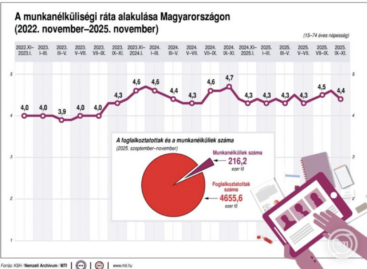Distant but open door: Hungarian companies see opportunities in Uzbekistan
Although geographically and culturally distant, Uzbekistan could be one of the most promising new markets for Hungarian companies – at least this is what the Uzbek-Hungarian business forum held in Budapest on May 20, where the highest-level political and economic decision-makers of the two countries sat around the same table, Telex writes in a recent article.
 The meeting, building on a previous agreement between OTP and the Uzbek Ipoteka Bank, aimed to involve more Hungarian companies in the development of the Central Asian country. Uzbek President Shavkat Mirziyoyev emphasized with his personal presence that his country is open to Hungarian capital, especially in the financial, agricultural, industrial park development, energy and telecommunications sectors.
The meeting, building on a previous agreement between OTP and the Uzbek Ipoteka Bank, aimed to involve more Hungarian companies in the development of the Central Asian country. Uzbek President Shavkat Mirziyoyev emphasized with his personal presence that his country is open to Hungarian capital, especially in the financial, agricultural, industrial park development, energy and telecommunications sectors.
The meeting was attended by well-known Hungarian business leaders such as Sándor Csányi (OTP), Zsolt Hernádi (Mol), Dániel Jellinek (Indotek), Gellért Jászai (4iG), and László Szíjj (Duna Aszfalt). Several of them already have specific Uzbek interests: OTP is considering further expansion after the already profitable Ipoteka Bank, and the PortfoLion capital fund belonging to the OTP group has started a chicken farm project, with the participation of the Hungarian state.
The country’s economic attractiveness is primarily due to its demographic dynamics and development potential: Uzbekistan currently has a population of 35 million, 60% of whom are under 30, and rising incomes predict a rapid increase in consumption. The Hungarian government is actively supporting the expansion of Hungarian companies in foreign markets in this direction as part of its Eastern opening strategy – HEPA (Hungarian Export Development Agency) is also a partner in this.
It was said at the meeting that Hungarian companies could also be involved in the flagship project of the Uzbek state, the 25,000-hectare New Tashkent City urban development, which would serve as the new center of the capital for 2.5 million people. The project would offer supplier opportunities in many segments – construction, logistics, infrastructure, services.
Despite the optimism, the challenges cannot be ignored: Uzbekistan is still a highly centralized, authoritarian country, where the regulatory environment is less predictable, and building investor confidence is a time-consuming process. However, the Hungarian side seems to have the determination that the risk is worth taking in light of the opportunities – if not elsewhere, then in this we are similar to the Uzbeks.
Related news
Exports could be a breakthrough opportunity for Hungarian farmers
🎧 Hallgasd a cikket: Lejátszás Szünet Folytatás Leállítás Nyelv: Auto…
Read more >KSH: The volume of exports of food, beverages and tobacco increased by 6.8 percent, while imports increased by 9.8 percent
🎧 Hallgasd a cikket: Lejátszás Szünet Folytatás Leállítás Nyelv: Auto…
Read more >The number of employees in trade and public administration increased annually
🎧 Hallgasd a cikket: Lejátszás Szünet Folytatás Leállítás Nyelv: Auto…
Read more >Related news
The impact of the forint exchange rate on GDP growth
🎧 Hallgasd a cikket: Lejátszás Szünet Folytatás Leállítás Nyelv: Auto…
Read more >









